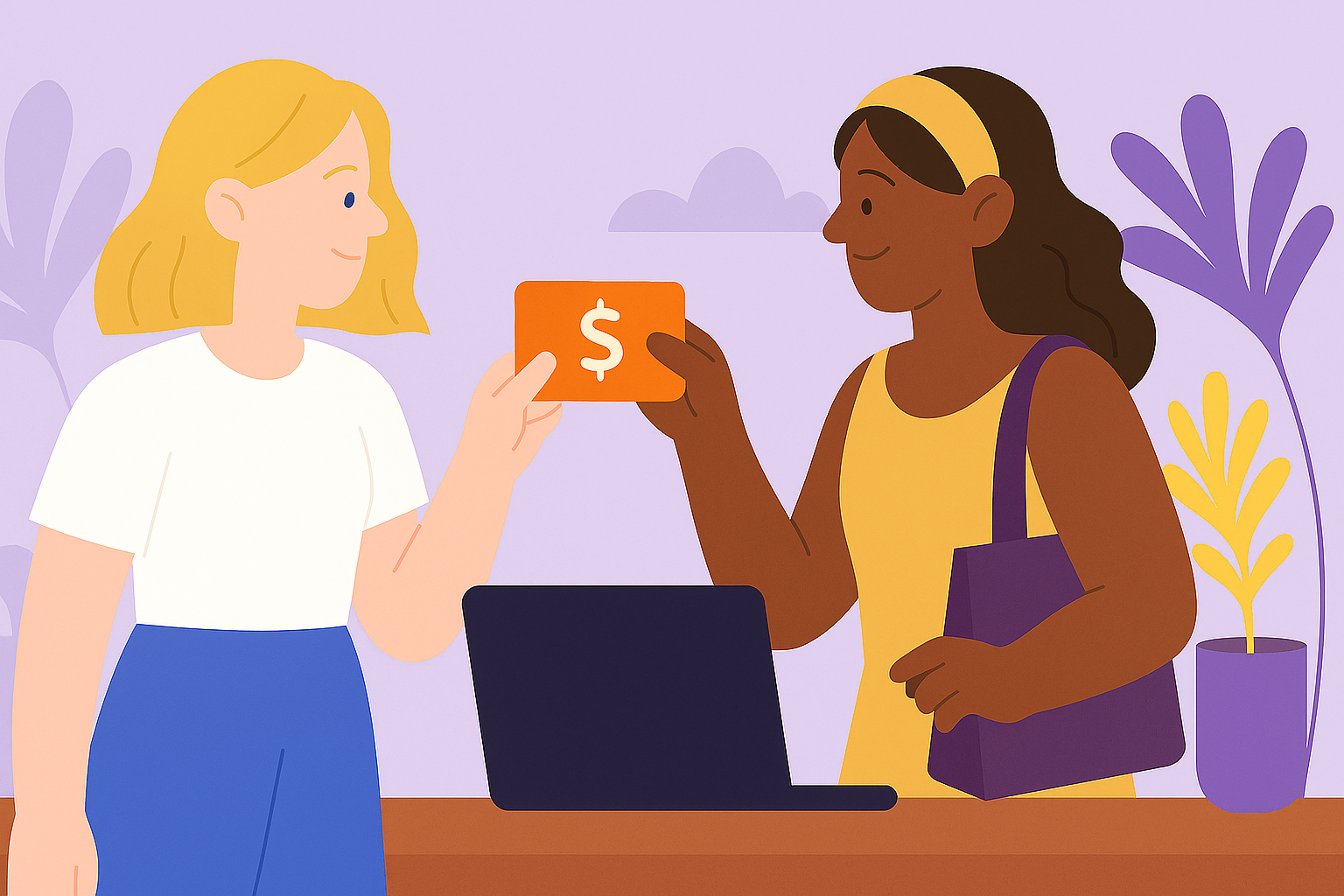.png)
These two terms have often been used interchangeably, but this is becoming less and less the case as people have come to note the general distinctions in who is considered an influencer and who is a content creator. If you are a brand manager parsing through what these designations mean among the people you collaborate with inside the digital sphere, let us shed some light for you on how people tend to be thinking about the two different entities.
Much of the confusion stems from the vagaries of how influencers and content creators refer to themselves. Are you a content creator influencer? An influencer creator? What do we mean by content creator vs. influencer?
A Brief History of Influencers and Content Creators
The influencer term has been in use since social media first came to the fore. At this time, certain figures rose to prominence as voices of expertise and aspiration to a particular following or niche. In the early days, standout influencers achieved something like celebrity status as pioneers in a new kind of role particular to a specific space or interest.
Now the traditional role of influencer has expanded considerably. Look at any hashtag associated with a commercial product, and you'll likely find a slew of users promoting a particular piece of clothing, a gadget, or a subscription service. This has made the influencer label a bit less prestigious than it was in those days past. But if anyone with a significant enough following can now sponsor a particular brand, does that make everyone an influencer?

Particularly in conjunction with the rise of TikTok, the creator term has come to new prominence. It seems to shy away from the somewhat self-aggrandizing connotation associated with the idea of an influencer. In reality, "creator" has been around in the digital world since about 2011. It is likely that it grew out of the wave of bloggers taking to the internet and setting themselves apart as "content creators", offering their own insights and contribution to the conversations surrounding particular interests. Then, as Instagram took off and YouTube continued its evolution, the idea of content broadened to encompass photography and video, and the platforms began recognizing creators based on their subscriber count.
But the road for creators was not a smooth one. When Vine, an early forerunner of TikTok, unexpectedly folded in early 2017, many creators began to see the unstable nature of this form of income. Shortly thereafter, YouTube changed its pay structure for the YouTubers who bring eyes to the advertising on the platform. Again, many creators saw their income dwindle or disappear.
The career trajectory for content creators has been unpredictable. But because technology and the internet morph and change so rapidly, we're now seeing how the shift from influencer to content creator is becoming a solid fixture of so many marketing strategies. Businesses and brands want campaigns that give them the best ROI.
Entering the Content Creator Era
So much work goes into creating content—including copywriting, video production, video editing—a whole range of abilities that build brands and cultivate engagement more rapidly and more meaningfully than old-school advertising methods.
At the moment, self-defined "creators" are the energy and push behind so much of the most effective digital marketing strategy—particularly to the younger generation who prefer to step away from the notion of "influencer." The distinction lies in how "influencer" seems to denote an online personality determined to sell a product or persuade their audience to favor a particular brand. But many people care more about the content itself than whether or not they're influencing someone with it. This has led to the rise of the creator: social media content creators, Instagram content creators, video content creators, TikTok content creators, freelance content creators, and more.
Many people now aspire to be creators because of how easy it is to share and spread ideas. With just a laptop and a phone, anyone can communicate to the world using their knowledge, personality, and editing skills to offer up an engaging message. However, in spite of this being a saturated playing field, there's a need for experienced and committed creators who know what they're doing. This has both upped the competition and created a strong pool of talent that allows businesses and brands to have their pick of great collaborators who will be able to relay their message in the way they wish.

In the social media world, many prominent content creators first arrived on the scene when a particular piece of content went viral, brought them an influx of new attention, and provided a way for them to continue cultivating their offerings. This newfound audience then translated into growing revenue on YouTube or Instagram—or other platforms like Patreon or OnlyFans that provide greater autonomy. The pandemic only served to ignite the field of content creation. Many people needed new ways to make money, and others had nothing but free time to consume what was being generated. TikTok, in particular, saw a surge of users—reaching two billion downloads by October 2020.
These days, the best content creators think of themselves as experts within a certain area of specialization. Their primary goal is to help educate and inform their audience. Many of them cultivate a decent following within their niche—though seldom at the level of a mega-influencer—and this actually translates to significant business potential. This is because creators prioritize building a community among their followers—creating a place for them to be entertained, share ideas, bond with each other, and spend their money in like-minded ways.
All of this has led to a level of interactivity and engagement that goes beyond a user's limited relationship with a traditional influencer, which might amount to glancing at a selfie, noticing the hashtag or promo code, and then making a split-second choice to either tap or continue scrolling. It's usually a given that creators have a passion for the brand they're sponsoring. This devotion is apparent in the nature of the content they make, the work that goes into it, and how they've incorporated a particular brand into their life to make it a part of their own identity. Nevertheless, although it seems more aloof and less personal, influencer marketing still pays substantial dividends with the right interplay of influencer, product, and target audience.
The Difference Between Influencers and Creators
For Creators, defined by Adobe as "someone who creates entertaining or educational material to be expressed through any medium or channel," the focus is largely on the integrity and usefulness of the product or service. Creators also provide a wider look at your brand as a whole and are often seen as the more objective of the two labels, less preoccupied with monetizing a product, more absorbed in examining the specifics of a particular interest. They ask questions about how items and services can optimize a process, add to someone's personal aesthetic, support corporate ethics, or contribute to somebody's life.
While influencers share these interests and concerns, they tend to look at these questions in less far-reaching and incisive ways. As many influencers rebrand themselves as content creators, there's a subtle shift taking place. They are moving away from messaging that says "here's what you should buy to be like me" and moving toward "here's a product I've added to my life because I love how it contributes to who I am." While buyers still browse, shop, and buy from a psychologically aspirational place, creators do seem to offer a more welcoming approach to a brand. The messaging is that you're part of a larger movement and community where everyone has the possibility to actualize and become their best selves.
The creator model also recognizes the reality that the audience is in the driver's seat. They have many places they can choose to spend their money and many creators to engage with. Creators acknowledge this and simply present them with the choice. However, both influencers and creators ultimately serve as extensions of your company and representatives of your brand, and influencers will remain a key part of the marketing arsenal as long as they cultivate a substantial following that has an ongoing affection for the influencer themself. The reach and visibility of a respected influencer can't be overstated.
How to Collaborate With Creators and Influencers
In the case of both influencers and content creators, the path toward a productive partnership is similar. Begin by contacting a set number of creators and/or influences through a personalized direct message. To start, offer them an opportunity to try a product for free. From there, you can start forming a relationship that's based more on a shared love of the niche rather than a strictly transitional arrangement. This generosity and rapport will almost certainly translate to the content they go on to make. They will feel genuinely compelled to impart their delight in the product and present your company in the best light.
Getting an honest and authentic positive review on their social media builds trust with the audience and actually serves to personalize your relationship with the end buyer. Make sure that your website and product pages on each social media platform are set up to receive a generous influx of traffic based on the response the exposure generates. You'll want to continue furthering the positive experience of the customers once your creator or influencer makes the hand-off.

Because of the distinctions between influencers and creators, it makes sense for brands to work with each of them at varying points in the marketing strategy. When launching a new product, creators will often create the visual, written, or video material that excites people and generates a burst of initial buzz around a product. Creators can also give you high-quality, insightful, varied material to work with that serves to educate the consumer.
Once the product is off the ground, influencers offer an opportunity to broaden the visibility of the product and bring awareness to a larger body of people, often beyond the content creator's niche group of aficionados. Influencers cast a wide net and often have a specific way they prefer to promote the products—like an Instagram post or a video. They generally won't deviate from the method they know to be their strength. Influencers offer a great marketing route when your brand already has a certain amount of content in place, and you need to let a larger group of people know what you're all about—with the influencer's stamp of approval.
We'll wrap up by noting that, even as we've discussed the two roles in a generalized way, the lines between the two continue to blur. Many individuals function as a hybrid of both influencer and content creator. You will find that the roles will tend to overlap as you decide which people to partner with and enlist for particular parts of the campaign. The two will likely proceed to merge even further as influencers continue to broaden their skillset to compete with creators in their output. Above all, give yourself an appropriate amount of time to track down and get to know the influencer and content collaborators you intend to work with for the long term. Get them to feel like they are part of your brand family and then enjoy the fun that comes from teaming up with colleagues who love the work you do and are eager to be a part of it.


.png)


